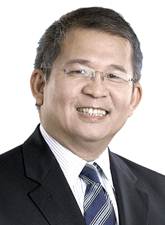In brief
The year 2022 marks a noteworthy year for a quantum leap in Thailand’s electric vehicle (EV) market.
Against the backdrop of Thailand’s commitment to carbon neutrality and net-zero greenhouse gas emissions at COP26 (link1, link2), combined with the unexpected uncertainty in oil and gas prices, Thailand’s EV market has accelerated to a new peak. Providing that the 30@30 goal under the national EV roadmap (i.e., to raise the proportion of zero-emission EVs (ZEVs) to 30% of all domestic vehicle production by 2030) goes as planned, we take a look at what to expect in Thailand’s EV space, along with what has been happening during the first half of 2022.
New tax rates for EVs
At the beginning of 2022, Thailand rolled out several tax-related measures to boost domestic EV demand, including exemption or reduction of import duty and excise tax, and conditional subsidies for imported EVs (link). These schemes have been enthusiastically received by Thai consumers with the number of EV car sales hitting a new record of five digits in a matter of weeks following the announcement of the new tax policy. For ease of reference, we have summarized these schemes in the table below.
Table 1: Excise Tax Rates
| Vehicle type | Previous and current excise tax rates | New excise tax rates* | Effective date | Remarks |
| Battery EV | 8%** | 2% | 9 June 2022 | Qualified automakers must fulfil certain conditions under the relevant Excise Notifications. |
| Plug-in hybrid EV (with cylinder up to 3,000 cc) | 8-26% (the former hybrid EV tax scheme) | 5-10% | 1 January 2026 | The new tax rates are structured to encourage the production of PHEVs with smaller fuel tanks and a longer driving range per each charge. |
| Internal combustion engine (ICE) passenger cars (with cylinder up to 3,000 cc, and carbon emission above 150 g/km) | 30-35% | 29-38% | 1 January 2026 | Tax rates will gradually increase from 2026 onwards, depending on the type of vehicle, type of fuel, engine size, and carbon and particulate matter emission |
| Fuel cell EV | 8% | 1% | 1 January 2026 |
*Subject to the conditions of the Excise Department.
**Excise tax rate for electric powered passenger cars with 10 seats or less, excluding those subject to other specific privileges, e.g., BOI investment promotion scheme.
In addition to this, importers are entitled to duty exemption or reduction privilege when importing EV Completely Built Units (CBU) into Thailand if the importers comply with the requirements of the Excise Department and the Customs Department.
These developments reiterate the message that Thailand endeavors to position itself as a new EV hub of Asia and will drive the EV transition as a mean to achieve its environmental goals.
As mentioned in our previous article (link), financial incentives are among the most effective methods to ramp up domestic EV adoption. Going forward, to enable a full spectrum of vehicle electrification in Thailand, the policy maker may also need to consider tax incentives for electrification of the existing ICE vehicles as well. This is because engine modifications can be considered as “production” under the Excise Tax Act, where relatively high excise tax rates still apply.
BOI further enhanced EV-related investment promotion
The Thailand Board of Investment (BOI) has also been promoting investment into the manufacturing of EVs and the main 17 EV parts. Last year, the promotion was extended to cover the battery EV (BEV) platform as well (link). Table 2 summarizes latest developments on EV-related investment promotions.
Table 2: EV-related privileges under BOI schemes
| EV battery | •BOI announced in June 2022 additional privileges under the investment promotion scheme for EV battery projects using advanced technologies to produce battery cells or battery modules for BEV or high energy density batteries.•The new scheme will extend the reduction of up to 90% of the import duties of raw materials and essential materials for domestic production of the applicable EV batteries from a two-year to five-year term. •This privilege also applies to the existing BOI projects. |
| EV Charging station | •The BOI notification, effective on 7 April 2022, revised and relaxed the conditions for granting privileges for EV charging business. •A five-year corporate income tax exemption to be provided to qualified investment projects with 40 or more chargers (of which at least 25% must be a quick-charge DC type). •A three-year corporate income tax exemption to be provided for other cases.•Removal of two previous requirements, i.e., the condition barring investors from receiving additional benefits from other agencies and the requirement for ISO 18000 certification. |
| Other potential business | Investment promotions for activities related to new EV technologies are under consideration, including cell-to-pack battery production, portable charging systems and battery swapping systems. |
Currently, there are around 1,000 charging stations in Thailand with half of these located in Bangkok and surrounding provinces. Considering the goal of 12,000 EV fast chargers by 2030 under the national EV roadmap and the lowered threshold to facilitate more investors by the BOI, there is more room for growth in this area. More investments in this area are being observed in various forms including joint ventures of local and foreign companies and direct foreign investment. With the increase of BEVs in Thailand, a healthy growth of EV charging business can be expected.
Efforts and collaboration among public and private sectors
On the policy maker’s side, an effort to promote EV opportunities in Thailand can be seen through the recent roadshow to Japan by the delegation led by the Deputy Prime Minister and the Secretary General of the BOI. The roadshow was reported to deepen bilateral cooperation and partnership for future investments in strategic industries, including EVs.
In early July, when the Thai PM delivered his message regarding the three main pillars for Thailand’s industrial and economic development for the next 20 years, he emphasized the importance of transforming Thailand to an EV hub and recommended that the automotive industry adapt themselves to EV environments, adding that the government will continue its efforts to make the cost of EVs and EV-related infrastructure reasonable.
In terms of laws and regulations, apart from the above-mentioned tax legislation and investment promotion schemes, the Ministry of Industry have endorsed more than a hundred EV-related standards during the past two years and more are expected this year.
When compared with the current policy aiming to boost EV purchasing demand, the government is still silent on financial incentives for EV charging station business. However, the electricity related authorities, i.e., the Electricity Generating Authority of Thailand, the Metropolitan Electricity Authority and the Provincial Electricity Authority, have been promoting and working with the private sector including individuals to facilitate the establishment of EV charging stations. Since the EV charging business requires relatively high investment input, once the EV adoption ratio rises to a certain level, we may see more attractive subsidies for EV charging facilities, both for commercial-use and home-use, to meet the needs of EV users.
In addition, the Thailand Automotive Institute, an independent organization under the government and private sector cooperation, has announced its plan to build a test track for BEVs as well as the new development project for automotive test tracks.
EVs as a sustainability journey
As mentioned above, increasing collaboration, competition and exciting opportunities await in Thailand’s EV market. Development in EV value chains will not only be beneficial to the EV space, but will also help stimulate growth and innovation in various other industries such as smart electronics, alternative clean energy generation and storage, and smart city development.
EV transition is also part and parcel of the global moves towards more ESG (environment, social and governance) focused consciousness. With the growth of the EV ecosystem, communities are likely to become more sustainable as a whole due to cleaner air, smarter energy management and less greenhouse gas emissions. EV-related companies may also prepare for and consider sustainability initiatives to fully leverage competitiveness and mitigate new risks emerging from the ESG framework.









